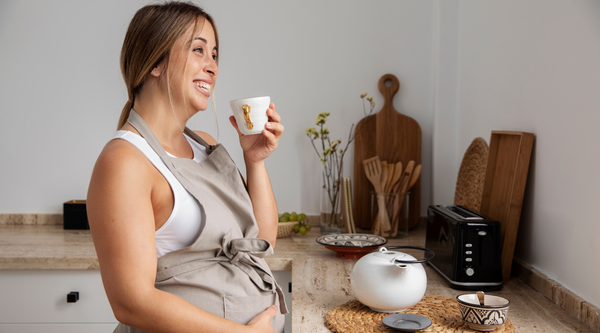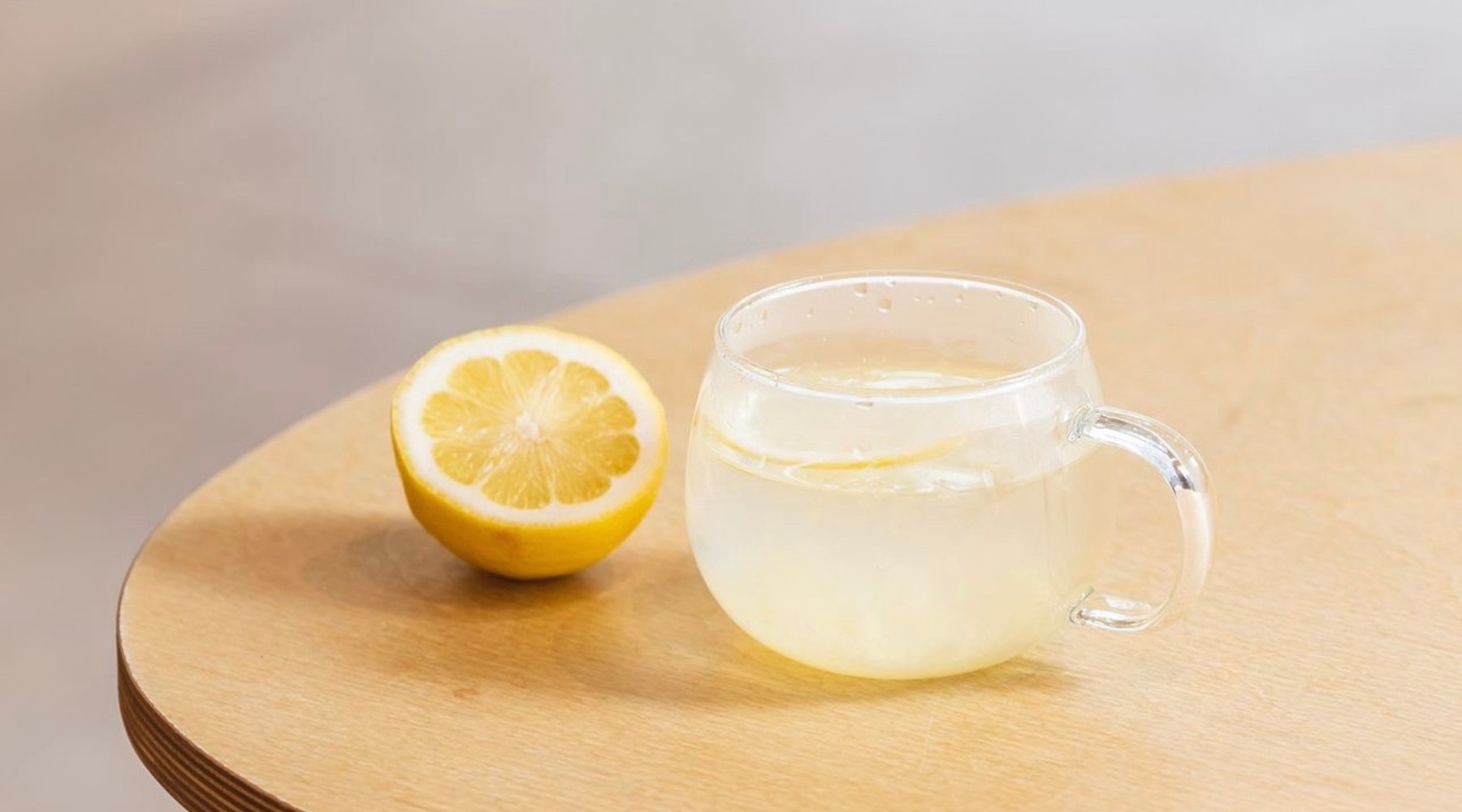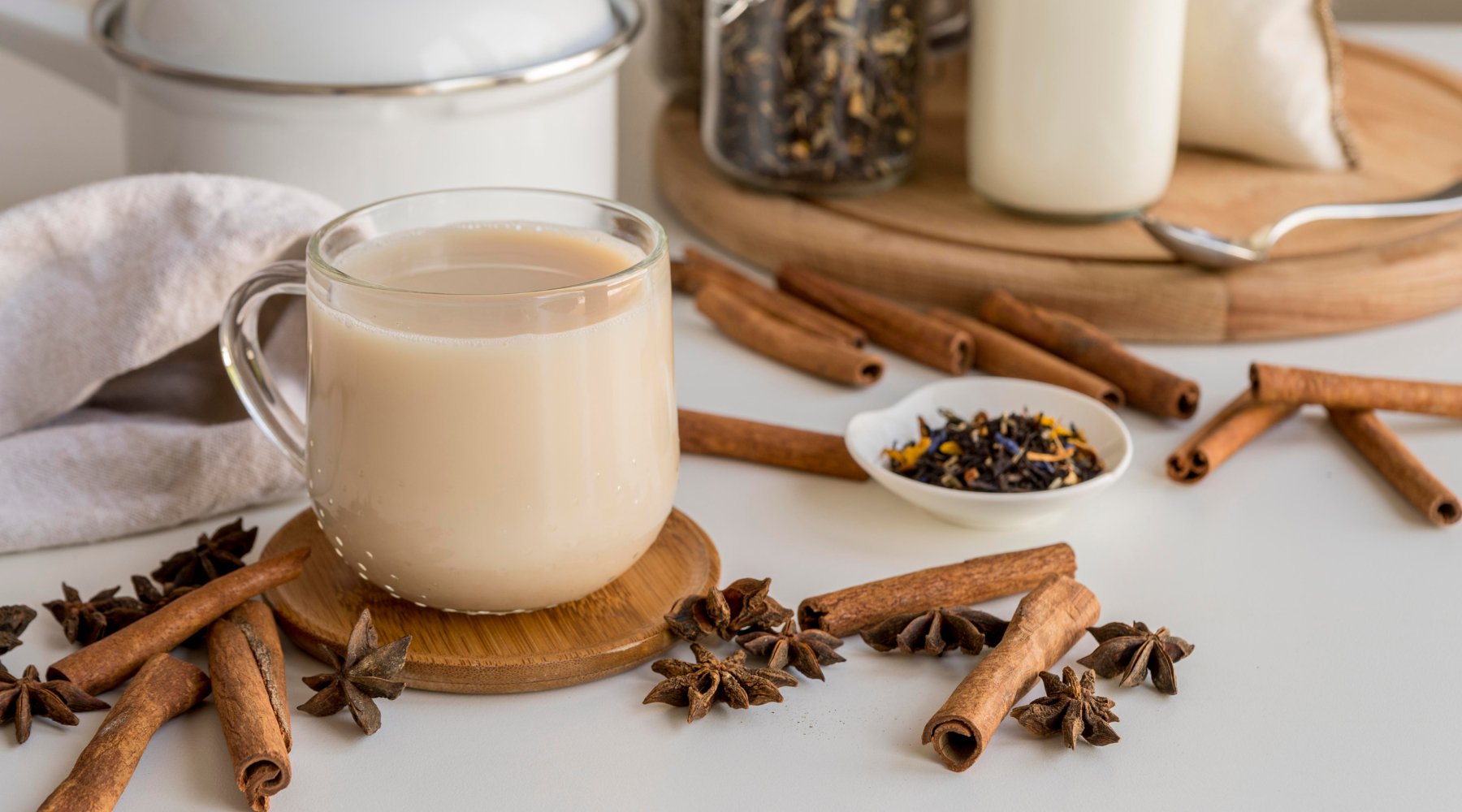
Tea and Pregnancy: Navigating the Do's and Don'ts for Moms-to-Be
Bringing a new life into the world is a transformative experience – one filled with joy, excitement, and perhaps a touch of uncertainty. During pregnancy and breastfeeding, the choices you make profoundly impact both you and your baby. One area of curiosity and concern for many moms-to-be and nursing mothers is their beloved cup of tea, especially when it comes to pregnancy teas and breastfeeding teas.
Tea, with its diverse array of flavours and purported health benefits, has been a cherished beverage for centuries across cultures. But, when you're sipping for two, a few new considerations come into play. Is it safe to continue your tea habit? Are there teas that can offer benefits during pregnancy and lactation? What should you absolutely avoid?
In this guide, we'll explore the soothing world of tea and its intersection with the miraculous phases of pregnancy and breastfeeding. From herbal infusions to traditional brews, we'll uncover the safe sips, the cautious choices, and the teas best left untouched.
Before we begin, a word of wisdom: individual health requirements can vary greatly. What suits one mother-to-be or nursing mom may not be ideal for another. So, while this guide provides a comprehensive overview and general advice, it's essential to consult with your healthcare provider before making any significant changes to your diet, including your tea consumption.
Your doctor knows your unique health situation and can provide tailored guidance to ensure the health and well-being of both you and your baby.
So, steep a cup of your favourite brew (if you’re already sure it’s safe), settle into a cosy spot, and let's explore the world of tea during this extraordinary journey of motherhood.
Tea and Pregnancy
Tea can provide a moment of tranquillity amid the whirlwind of pregnancy, a time when self-care is not just a luxury but a necessity. However, the journey of pregnancy comes with unique considerations, and what you sip matters more than ever.
Which Teas Are Safe During Pregnancy?
During pregnancy, it's crucial to choose your teas wisely. Opting for caffeine-free herbal teas is often the safest route.
Chamomile tea, for example, is popular for its calming properties and is generally safe during pregnancy. It may help alleviate insomnia and soothe digestive discomfort.
Ginger tea is another excellent choice. It can help combat morning sickness, which is a common woe for many pregnant women. Ginger has a natural spiciness that can ease nausea and gastrointestinal distress.
Peppermint tea is often recommended as well. It can alleviate indigestion and bloating, providing much-needed relief during pregnancy.
As its name suggests, calming tea can help you relax and de-stress, which can be particularly beneficial during pregnancy.
Rooibos tea is caffeine-free and rich in antioxidants, making it a safe and healthy choice for expecting mothers.
Known for its anti-inflammatory properties, turmeric tea can provide relief from pregnancy-related aches and pains.
The zesty combination of lemongrass and ginger tea can help with digestion and ease morning sickness.
Serenity tea is an exquisite blend that helps to promote relaxation and tranquillity, ideal for those moments when you need to unwind.
Cool mint tea can soothe digestive discomfort and leave you feeling refreshed.
While these herbal teas are generally considered safe, it's always a good idea to consult with your doctor before introducing new teas into your pregnancy routine. They can offer personalised guidance based on your unique health and pregnancy circumstances.
Herbal Teas vs Non-herbal Teas for Pregnancy
When it comes to tea during pregnancy, you'll frequently encounter two broad categories: herbal teas and non-herbal teas, also known as true teas. Let's break down the differences.
Herbal Teas
These teas are typically caffeine-free and crafted from a variety of herbs, spices, and botanicals. Some herbal teas are renowned for their pregnancy-friendly qualities, such as ginger for morning sickness relief or peppermint for digestive comfort.
Others, however, should be consumed with caution, or avoided altogether, due to potential contraindications. Always consult with your healthcare provider to ensure the safety of any herbal tea you choose during pregnancy.
Non-herbal Teas (True Teas)
These teas, which include varieties like black, green, white, and oolong tea, originate from the Camellia sinensis plant. They contain caffeine, although usually in lower amounts compared to coffee. Some expecting mothers may prefer non-herbal teas for their unique flavours and potential health benefits.
However, due to the caffeine content, moderation is key. It's generally advisable to limit caffeine intake during pregnancy to 200-300 milligrams per day, which is roughly one 12-ounce cup of brewed tea.
Ultimately, the choice between herbal and non-herbal teas during pregnancy depends on your individual preferences and any specific recommendations from your healthcare provider. Prioritise safety, moderation, and variety to ensure a wholesome tea experience throughout your pregnancy journey.
Potential Benefits of Pregnancy-Safe Teas
Pregnancy-safe teas offer a range of potential benefits for expectant mothers. These teas are often caffeine-free and can provide soothing relief for common pregnancy discomforts. They might help ease nausea, alleviate digestive issues, and promote relaxation.
The gentle nature of pregnancy-safe teas makes them a popular choice for those seeking comfort and well-being during this special time. However, it's essential to choose teas wisely, considering individual needs and preferences.
Precautions and Moderation
While these teas can be beneficial, it's crucial to practise moderation during pregnancy. Avoid excessive consumption, especially when it comes to herbal teas.
Furthermore, it's wise to be cautious of herbal teas that are marketed for specific health purposes. Some may contain ingredients that are not safe for pregnancy. Always read labels carefully and, when in doubt, consult with your healthcare provider.
Remember that each pregnancy is unique. What works for one may not work for another. Prioritise open communication with your healthcare team to ensure the teas you choose align with your specific needs and health conditions during this remarkable journey.
What Teas to Avoid During Pregnancy?
While there are many teas considered safe during pregnancy, some should be avoided or consumed with caution. Teas containing high levels of caffeine, such as black, green, and white teas, should be limited. Excessive caffeine intake during pregnancy has been associated with adverse outcomes. Additionally, herbal teas can vary widely in their effects, so it's essential to research specific herbs before use.
Teas containing herbs like licorice root, pennyroyal, sassafras, ephedras, and buchu should be avoided, as they may have adverse effects on pregnancy. Always check labels and consult with a healthcare provider to ensure the teas you choose are safe and suitable for your individual circumstances.
Tea and Breastfeeding
Tea can be a soothing companion during your breastfeeding journey, offering moments of relaxation amidst the joys and demands of motherhood. However, it's crucial to be mindful of the teas you choose, as some can affect your milk supply or your baby's well-being.

Teas That Support Breastfeeding
Certain herbal teas seem to support breastfeeding by potentially enhancing milk production and aiding lactation. Popular choices among breastfeeding mothers include fenugreek tea, fennel tea, and blessed thistle tea. These teas may offer lactation-boosting properties, but individual responses can vary.
Caffeine and Its Impact
While sipping tea can provide a gentle energy boost for tired moms, it's essential to manage your caffeine intake. Excessive caffeine consumption can lead to restlessness, irritability, and sleep disturbances in both you and your baby. Opt for caffeine-free or low-caffeine teas to maintain a healthy balance.
Addressing Common Concerns
Breastfeeding mothers often have concerns about tea consumption, ranging from milk supply to potential allergies in their babies. To address these concerns, it's advisable to consult with a healthcare provider or a lactation consultant. They can offer personalised guidance, ensuring that your tea choices align with your breastfeeding goals and your baby's well-being.
Choosing the Right Tea
Selecting the perfect tea during pregnancy and breastfeeding involves considering various factors to ensure the health and well-being of both you and your baby. Here are key points to keep in mind:
Reading Tea Labels
When exploring tea options, closely examine the labels for information on ingredients, caffeine content, and certifications. Look for teas specifically labelled as "pregnancy-safe" or "breastfeeding-friendly." These teas are formulated to align with your unique needs during these phases. Alternatively, try to pick from caffeine-free herbal teas and avoid what we have listed other “What Teas to Avoid During Pregnancy?”
Organic vs Non-Organic
Opting for organic teas can reduce your exposure to pesticides and chemicals that may be present in conventional teas. Organic teas are cultivated without synthetic pesticides and herbicides, making them a safer choice for expectant and breastfeeding mothers.
Pre-Packaged vs Loose Leaf
Deciding between pre-packaged tea bags and loose leaf tea comes down to personal preference. Pre-packaged tea bags offer convenience and are readily available in various flavours. Plus, new innovations in packaging have made them 100% safe, eco-friendly, and biodegradable. Check out our NeoSoilon® Tea Bags.
Loose leaf tea, on the other hand, allows for a more customisable brewing experience. Whichever you choose, ensure that the tea is pregnancy-safe or breastfeeding-friendly, and brew it according to recommended guidelines.
Hydration and Staying Balanced During Pregnancy & Breastfeeding
Staying well-hydrated is essential during pregnancy and breastfeeding. While tea can be a delightful choice, it shouldn't replace your primary source of hydration: water. Aim to consume at least 8-10 cups of water daily. This helps maintain your body's fluid balance and supports milk production during breastfeeding.
Tea can be a part of your daily routine, but try to always stick to moderation. Consider incorporating herbal infusions, such as chamomile or peppermint, as a caffeine-free alternative. These can be hydrating and soothing, making them excellent choices for both pregnancy and breastfeeding.
Remember that herbal teas, though generally safe, can have varying effects on individuals. If you experience any adverse reactions or discomfort, consult your doctor. Additionally, it's advisable to consult with a healthcare professional before making significant changes to your tea consumption, especially if you have specific health concerns during pregnancy or while breastfeeding.
Is Chamomile Tea Safe for Pregnancy?
Chamomile tea is generally considered safe during pregnancy when consumed in moderation. However, it's advisable to consult with a healthcare provider before including it in your pregnancy diet, as individual sensitivities can vary. Some experts recommend avoiding chamomile in the first trimester due to its potential to stimulate uterine contractions, while others suggest it can be enjoyed in moderation throughout pregnancy.
Is Peppermint Tea Safe During Pregnancy?
Peppermint tea is usually safe for most pregnant women when consumed in moderation. It can help relieve common pregnancy discomforts like nausea and indigestion. However, it's important to note that excessive consumption of peppermint tea may lead to heartburn or worsen acid reflux for some individuals. If you have concerns or preexisting digestive conditions, it's best to consult with your healthcare provider before adding peppermint tea to your pregnancy diet.
Concluding Remarks
In the beautiful journey of pregnancy and breastfeeding, every choice we make holds significance, not just for ourselves but for the precious life we nurture within. Tea, with its comforting warmth, soothing aromas, and potential health benefits, can be a delightful companion on this path. From herbal infusions to traditional teas, there's a wide spectrum to explore and enjoy.
As you savour those aromatic sips, remember the golden rule: moderation is key. Be mindful of the caffeine content, opt for pregnancy-safe blends, and, when in doubt, consult your healthcare provider for personalised guidance.
Embrace the moments of calm and self-care that tea can offer during this exciting phase. It's not just about a beverage; it's about nourishing your body and soul, nurturing the connection with your little one, and celebrating the journey of motherhood.




Leave a comment
This site is protected by hCaptcha and the hCaptcha Privacy Policy and Terms of Service apply.